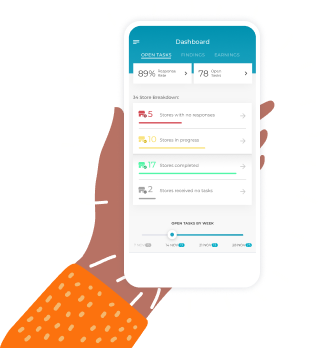In today’s competitive landscape, an innovative product development strategy hinges on a retailer’s ability to uncover hidden consumer demand patterns. Machine learning algorithms are the conduit through which retailers process consumer purchase data to uncover critical insights about what products customers in a specific market want most.
Chinese e-commerce giant Alibaba is at the forefront of “New Retail”, a term used by Alibaba’s founder, Jack Ma, in 2016. Ma envisions retail’s evolution as the synthesis of the worlds of brick-and-mortar and e-commerce. In his vision, sellers understand and can even deliver the exact products and services their customers want in near-real time.
At the essence of this philosophy is that brands must find innovative ways to meet consumer needs. In this customer-to-business (C2B) approach, consumers are co-creators defining a brand’s product development strategy. C2B is the antithesis of the traditional top-down approach whereby shoppers are passive to the products brands offer.
Alibaba has a massive consumer base. Their machine learning tool helps brands gain deeper insight into the consumption patterns of these customers and delivers actionable recommendations guiding brands on how to meet consumer needs. This has major implications for brick-and-mortar retailers’ product development strategy.
Alibaba’s TMall Innovation Center: The Birth of New Retail
In 2017, Alibaba created the TMall Innovation Center (TMIC) as the dedicated research and development arm of its highly successful e-commerce platform, TMall. TMall has more than 600 million users. This means that TMIC knows what 600 million consumers are searching for, which searches lead to what purchases, which products are returned and at what rate, and what common selling prices are for highly desired products.
TMIS shares this data with sellers. There are 81 brand working with TMIC in a variety of verticals. Electronics (Samsung), beauty (L’Oreal), toys (Mattel), and food (Mars) are all covered.
What does TMIC get out of this?
When one of these brands uses TMIC’s data to develop a product, that product is sold exclusively at (you guessed it) TMall for the first 6 months.
Welcome to what many are calling “new manufacturing,” a product development strategy in which consumers tell companies what to make. A focus group of 10 people talking it out in a room has been replaced by a focus group of 600 million speaking with their actions and voting with their wallets via TMIC and TMall.
It’s worth noting that this is a very different model than the one used by Amazon. Amazon uses their enormous repository of content to decide what to produce for its Amazon Basics line. Amazon Basics, however, cannibalizes sales from other brands who sell on Amazon.
Helping Brands Develop New Products for Local Consumers
The recent collaboration between TMIC and Mars demonstrates how machine learning helps merchants hone in on local consumer tastes. TMIC’s data-crunching tools process purchase information and survey insights from its millions of users.
Recently, their multimodal research revealed that a chili-infused Snickers bar would spark local Chinese consumers’ desires. The “idea-to-shelf” process took a year. When the product launched, sales of the spicy Snickers bar surpassed $1.43 million within six months. 92% of consumers gave the treat a glowing review.
TMIC also helped Johnson & Johnson discover that one of their target markets, young women in China, prefer mouthwash with flower and fruit flavors. The brand was able to launch a Listerine product for that market segment in only five months as a result. Working with TMIC has helped other vendors speed up their product incubation, slashing lead time by more than half of what they could previously achieve. Consumer tastes can be fickle and change seasonally. It’s critical that CPG companies understand and meet that demand swiftly to stay competitive.
Helping Brands with SKU Rationalization
SKU Rationalization, the decision-making process to determine if a particular product should be kept or discontinued, is another key benefit of TMIC. As part of an effective product development strategy, SKU rationalization helps retailers maximize inventory and decrease logistics costs.
The ability to make targeted local adjustments to distribution enables brands to drive sales, increase per SKU productivity, and reduce waste. A case in point is that of Mattel. The toy-maker wanted to sell toys in China, but faced resistance. According to Forbes, Chinese parents purchase fewer toys than other countries based on the belief that play hurts academic performance. Alibaba will therefore help Mattel advance toy sales by using that data-driven insights to tailor their Chinese assortment, aggressively emphasizing educational offerings.
Skinceuticals, a L’Oreal-owned skincare brand,collaborated with TMIC to win over the Chinese market. The brand had assumed that their Chinese customers would match the age range (35 years+) of their US and European markets, but were surprised to learn that 47% of SkinCeuticals’ Tmall customers were in the 19-to-30 age group. Data showed these customers are more interested in anti-blemish products than anti-wrinkle reducing ones
SkinCeuticals used the insights from TMIC to successfully optimize their assortment. Their TMall sales more than doubled. Conversation rates 71% in the month following the launch of the new marketing strategy shaped by TMIC data.
Big Data, Niche Markets
Alibaba’s new model of partnering with brands to develop and sell products is a big deal with major implications for US retailers large and small.
Gone are the days when you could just push out chain-wide bestsellers to a captive audience. Your customers have an infinite number of product choices. Local tastes shape demand at each door in your chain. The successes of Mars, L’Oreal, Johnson & Johnson, and Mattel are evidence that retailers can reach niche audiences by gaining actionable insight from big data. It’s about being able to predict and deliver the products your customers want when and where they want it.
This isn’t something that only the big brands can aspire to. CB4 helps retailers of all sizes understand local demand and how to profit from that understanding. Learn how our advanced machine learning tool helps store teams ensure that local customer favorites are in stock and ready to sell.
Related:
5 Big Takeaways from Our NRF Big Ideas Panel


